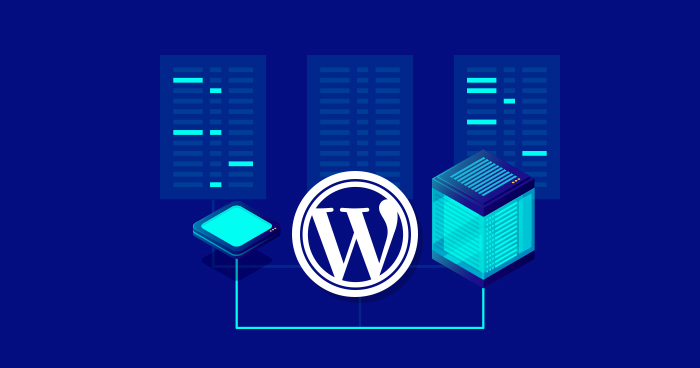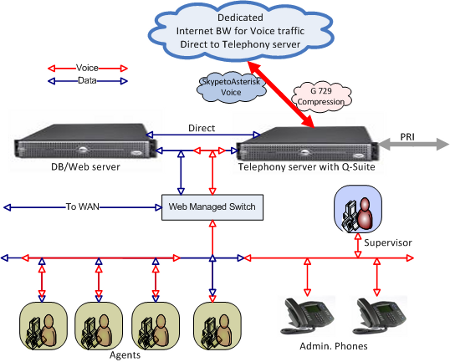The Future of WordPress Hosting
WordPress is the world's most popular content management system, powering over 40% of all websites on the internet. As the internet continues to evolve, the future of WordPress hosting looks bright, with many exciting developments on the horizon. In this blog, we'll explore some of the trends that will shape the future of WordPress hosting.
1. Cloud Hosting
Cloud hosting is an innovative approach to website hosting that
uses a network of servers to deliver fast and reliable website performance. In
the future, cloud hosting will become even more popular, with WordPress hosting
providers offering fully managed cloud hosting solutions that are scalable,
secure, and highly available. With cloud hosting, website owners can enjoy
flexible and scalable hosting options that allow them to adjust their resources
based on traffic spikes or business needs.
2.
AI-Based Hosting
Artificial intelligence (AI) is set to revolutionize the WordPress
hosting industry in the coming years. AI-based hosting solutions can monitor
website traffic and user behavior to identify potential performance bottlenecks
and suggest ways to optimize website speed and user experience. In the future,
WordPress hosting providers will use AI to offer intelligent and proactive
website performance optimization that can help website owners stay ahead of the
competition.
3.
Headless WordPress
Headless WordPress is a new approach to web development that
decouples the front-end of a website from the back-end. In a headless WordPress
setup, WordPress is used purely as a content management system, and the
front-end is built using a separate framework or platform. This approach offers
more flexibility, scalability, and speed, making it ideal for high-traffic
websites. As the demand for headless WordPress hosting grows, we can expect to
see more hosting providers offering specialized headless WordPress hosting
solutions.
4.
Security and Compliance
In recent years, website security and compliance have become
increasingly important, with website owners facing stiff penalties for
non-compliance with regulations such as GDPR and CCPA. This will continue to
prioritize security and compliance, offering robust security measures and tools
to help website owners stay compliant. This may include features like SSL
encryption, malware scanning, automatic updates, and enhanced authentication
methods. WordPress hosting providers may also offer compliance-specific
features and services, such as data retention policies, privacy policies, and
cookie consent banners.
5.
Integration with Other Technologies
WordPress hosting will continue to integrate with other
technologies, such as artificial intelligence, blockchain, and the Internet of
Things (IoT), to offer even more value to website owners. For example,
WordPress hosting providers may use blockchain technology to offer more secure
and transparent payment processing, or IoT technology to offer real-time
monitoring and analytics of website performance.
6.
Sustainable Hosting
As environmental concerns continue to grow, sustainable hosting
solutions will become increasingly popular. WordPress hosting providers will
offer hosting plans powered by renewable energy sources, such as solar and wind
power, to help website owners reduce their carbon footprint. In addition,
WordPress hosting providers may also offer features and tools to help website
owners optimize their website's energy consumption and reduce their overall
environmental impact.
The future of WordPress hosting looks bright, with many exciting
developments on the horizon. Cloud hosting, AI-based hosting, headless
WordPress, security and compliance, integration with other technologies, and
sustainable hosting are just some of the trends that will shape the future of
WordPress hosting. As website owners continue to demand faster, more secure,
and more sustainable hosting solutions, WordPress hosting providers will
continue to innovate and evolve to meet their needs.
Top 5 Managed WordPress Hosting Providers for 2023
As we approach 2023, there are numerous managed WordPress hosting
providers to choose from, each with its own strengths and weaknesses:
WP Engine
WP Engine is a popular managed WordPress hosting provider that offers fast, reliable, and scalable hosting solutions. Their plans come with automatic backups, malware scanning, and 24/7 support. They also offer a wide range of features such as advanced security, content delivery network (CDN), and staging environments for testing changes before pushing them live.
Kinsta
Kinsta is a premium managed WordPress hosting provider that offers enterprise-level hosting solutions. Their plans come with features such as automatic backups, security monitoring, and easy site migration. They also offer a custom-built control panel, advanced caching, and CDN integration to ensure fast and reliable website performance.
Liquid Web
Liquid Web is a managed hosting provider that offers managed WordPress hosting solutions for businesses of all sizes. Their plans come with automatic backups, malware scanning, and 24/7 support. They also offer advanced security features such as SSL certificates, firewalls, and intrusion detection systems.Flywheel
Flywheel is a managed WordPress hosting provider that focuses on
delivering fast, easy-to-use hosting solutions for designers, developers, and
agencies. Their plans come with features such as automatic backups, malware
scanning, and free SSL certificates. They also offer a range of
developer-friendly tools, including Git integration, staging sites, and a local
development environment.
SiteGround
SiteGround is a popular managed WordPress hosting provider that
offers affordable hosting solutions with features such as automatic backups,
security monitoring, and 24/7 support. They also offer a range of
developer-friendly tools, including Git integration, staging sites, and SSH
access.
These are my top picks for the best-managed WordPress hosting
providers for 2023. Each provider offers its own unique set of features and
benefits, so it's important to choose the one that best suits your website's
needs and budget
The Cost of WordPress Hosting
The cost of WordPress hosting can vary greatly depending on the type
of hosting you choose and the specific features included in the hosting plan.
Here are the different types of WordPress hosting and their typical costs:
- Shared
Hosting: Shared hosting is the most affordable
option for WordPress hosting, with plans starting as low as $2.95/month.
This type of hosting involves sharing server resources with other
websites, which can impact website speed and performance.
- VPS
Hosting: Virtual Private Server (VPS) hosting
offers more control and resources than shared hosting, with plans
typically starting around $20/month. VPS hosting involves sharing a server
with other websites but with dedicated resources allocated to your site.
- Dedicated
Hosting: Dedicated hosting involves having an
entire server dedicated to your website, which offers the highest level of
control and resources. This type of hosting typically starts at $100/month
or more.
- Managed
Hosting: Managed hosting offers the most
comprehensive hosting service, including website management and security.
Managed WordPress hosting plans typically start at $20/month for basic
plans, but can cost up to $200/month or more for advanced plans.
In addition to these hosting types, there are also additional
costs to consider such as domain registration, SSL certificates, and premium
plugins or themes. It's important to carefully review the pricing and features
of different hosting providers before making a decision.
When considering the cost of WordPress hosting, it's also important to consider the potential return on investment. A high-performing website can attract more visitors and customers, leading to increased revenue and business growth. It's worth investing in a reliable and fast WordPress hosting service to ensure the success of your website.


.webp)





Comments
Post a Comment